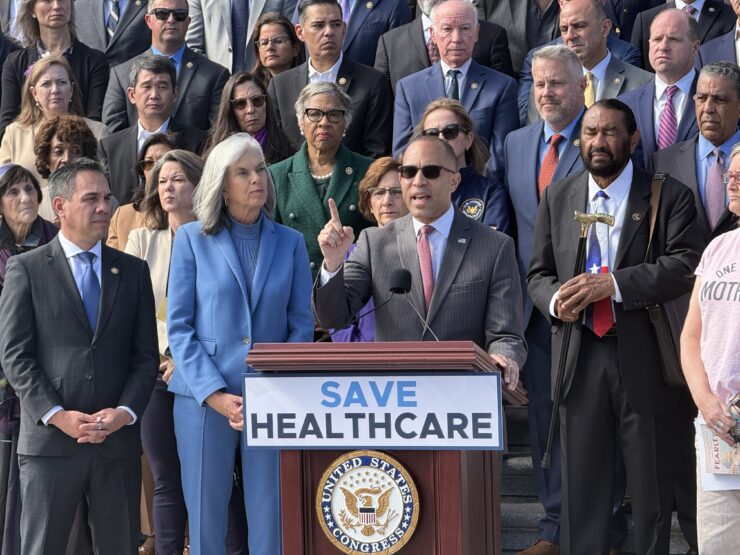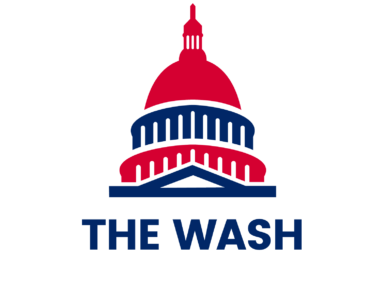Fifteen days into a tense government shutdown, Republicans and Democrats appear to be nowhere close to an agreement, leaving 750,000 workers on unpaid leave.
U.S. District Judge Susan Illston Wednesday put on hold the subsequent mass firing of about 4,100 of the federal workers — a decision aimed at the Trump administration. Illston, with the Northern District of California, questioned the legality of the administration to fire them.
Even as the courts weigh in, the shutdown appears far from over.
Senate leaders voted against ending the shutdown Wednesday for the ninth time after efforts to end the stalemate collapsed on Tuesday.
The shutdown is tangled in deep partisan divisions, with Republicans and Democrats refusing to negotiate over Democrats’ push to extend health care tax credits, which make health insurance cheaper for millions of Americans under the Affordable Care Act.
The shutdown — the fifth longest in modern history — mirrors the political brinkmanship seen during Trump’s first term when the stoppage lasted 34 days.
Stephen Farnsworth, political science and international affairs at the University of Mary Washington, said the administration’s strategy of sustaining select programs while tightening pressure on Democrats suggests the shutdown may be less a short-term funding lapse than a calculated battle over the future of federal spending and health care policy.
“Democrats find it difficult to make a deal with Republicans in Congress when the president has shown little interest in following the terms of existing laws on the federal budget,” Farnsworth said.
Deadlock in D.C.
Leadership wasn’t budging Wednesday.
House Speaker Mike Johnson said in a press conference he will not bring back House members until Senate Democrats agree to reopen the government first.
An hour and a half later, House Minority Leader Hakeem Jeffries said Democrats were willing to negotiate, but would not approve any funding bill without action on health care subsidies.
“We are ready, we are willing, and we are able to negotiate a bipartisan spending agreement,” Jeffries said outside the Capitol.
House Majority Leader Steve Scalise, R-LA, said that Senate Minority Leader Chuck Schumer, D-NY, is avoiding compromise with Senate Republicans on the shutdown to fulfill a “hostage list” of demands that will undermine Americans.
The impasse reflects a familiar dynamic in Washington, but this time the stakes are higher.
The layoffs across seven federal agencies started Friday, including at the Department of Education and the Department of Health and Human Services. Before Illston’s decision, over 4,100 employees received layoff notices.
Sen. John Fetterman, D-PA, said that Congress “should have never shut the government down,” when addressing concerns of mass layoffs of federal workers.
“They’re not going to get paid,” Fetterman said. “Don’t put them in that spot by shutting the government down.”
Republicans also want the government open, but blame the holdup on Democrats.
“I voted nine times to open the federal government,” said Sen. John Boozman, R-AR, outside the Senate subway. “The Democrats were blocking that.”
What is working or not
As key federal programs face growing uncertainty, the White House is working to shield certain services from disruption.
On Saturday, the Trump administration announced $8 billion would be reallocated to cover the pay of about 1.3 million active-duty personnel and National Guard members. Although they received their paycheck on Wednesday, Johnson said service members will miss their Oct. 31 paychecks if the government doesn’t reopen by then.
The move appears aimed at maintaining critical operations while blunting public backlash against the administration. But those steps may also remove much of the pressure that could otherwise force a deal.
Johnson said that conservative Republicans “prioritize troops and law enforcement.”
Republicans “moved that over to prioritize payment of those who are putting their lives on the line today, and the families in serious situations,” Johnson said.
When questioned about Capitol police working without pay, Johnson said that Republicans “are not taking pleasure” in this scenario.
The Senate is expected to vote again Thursday on the GOP-led funding bill without any expectation of a different outcome, according to Politico.















Add comment